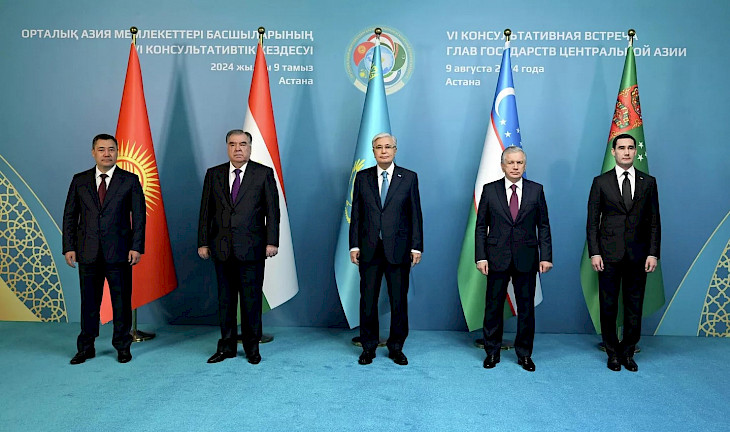Turkmenistan, traditionally cautious in establishing multilateral structures, has recently been actively discussing the "Central Asia +" cooperation format with other external actors, as highlighted in Eldaniz Guseynov's article on Eurasiatoday.ru.
For example, during a recent meeting between Turkmenistan’s Ministry of Foreign Affairs and a delegation from Italy, led by Italian Ministry of Foreign Affairs and International Cooperation envoy Federico Failla, the sides discussed a "Plan of Action for establishing multilateral cooperation networks between Central Asia and Italy."
Turkmenistan emphasizes this format in its interactions with other countries, such as Germany and Japan. Although this approach might seem unexpected, it aligns with the country's strategic interests.
-
Strategic Inclusion without Formal Alliances: The "Central Asia +" format naturally integrates Turkmenistan into regional initiatives due to its geographic location. This increases the country's international significance while maintaining its policy of neutrality.
-
Enhanced Cooperation: The format broadens interactions with nations where contact might otherwise be limited, facilitating stronger ties with the European Union, Japan, Germany, and others. This provides access to new markets, technologies, and investments critical for economic growth and diversification.
-
Boosting Regional and International Standing: Participation in multilateral meetings enhances Turkmenistan’s reputation among neighbors and global partners. It demonstrates the country's willingness to address regional issues like improving conditions in Afghanistan and participating in collective initiatives.
Overall, the "Central Asia +" format allows Central Asian countries, particularly Turkmenistan, Kyrgyzstan, and Tajikistan, to attract more attention through multilateral dialogue and cooperation with key external players.
Often, analyses of Central Asia predominantly focus on Kazakhstan and Uzbekistan. This format could help the global community better acquaint itself with the region’s other countries. While Guseynov expresses some skepticism about the long-term prospects of the "Central Asia +" meetings, he concludes that it is important to maximize the opportunities presented while interest in the format persists.
CentralasianLIGHT.org,
December 6, 2024

